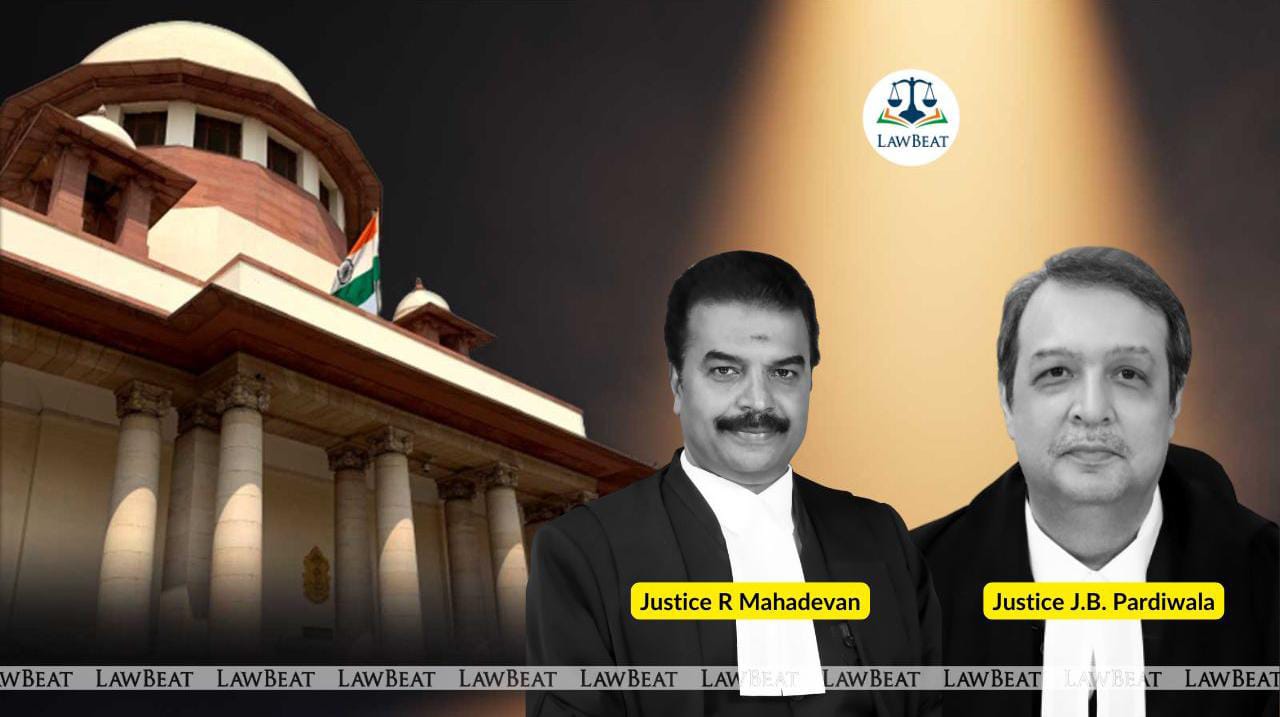Just Relief Can't Be Denied for Procedural Errors: SC

The Supreme Court dismissed an appeal against the Karnataka High Court's judgment
The Supreme Court has said rules of procedure are intended to be a handmaid to the administration of justice, and a party cannot be refused just relief merely because of some mistake, negligence, inadvertence or even infraction of rules of procedure.
"The court always gives relief to amend the pleading of the party, unless it is satisfied that the party applying was acting mala fide or that by his blunder, he had caused injury to his opponent which cannot be compensated for by an order of cost," a bench of Justices J B Pardiwala and R Mahadevan said.
The court said that ordinarily when a suit is filed for cancellation of sale deed and recovery of possession, the same would suggest that the title of the plaintiff has already been lost.
"By seeking to get the sale deed set aside on the grounds as may have been urged in the plaint, the plaintiff could be said to be trying to regain his title over the suit property and recover the possession. In such circumstances, the period of limitation would be three years and not twelve years," the bench said.
The Supreme Court dismissed an appeal against the Karnataka High Court's judgment by one Mallavva and another.
The High Court had dismissed the second appeal filed by Mallavva and another (original defendants). It had affirmed the judgment and order passed by the first appellate court allowing the appeal filed by the respondents (original plaintiffs) and decreed the suit for declaration of title and possession.
The Supreme Court examined whether the original suit filed by the plaintiffs even after the amendment of the plaint at the stage of first appeal seeking possession of the suit property could be said to be time-barred. In other words, whether the suit would be governed by Article 58 or Article 65 of the Limitation Act, 1963?
Referring to past judgments, the bench pointed out that the dictum laid down is the court should decline amendments if a fresh suit on the amendment claims would be barred by limitation on the date of application.
The appellants contended that the suit would be governed by Article 58 of the Limitation Act and was liable to be dismissed being time barred. Whereas the respondents (original plaintiffs) submitted that the suit was governed by Article 65 of the Limitation Act and even on the date when the first appellate court permitted the plaint to be amended, the same was well within limitation.
"It is well settled that when there are several reliefs claimed in a suit, the limitation period would be that of the main relief, the limitation for ancillary relief being ignored," the bench said.
The court held that the argument of the counsel appearing for the appellants was not sustainable in law as it proceeded on the assumption as if old Article 142 of the earlier Limitation Act was in force wherein the plaintiff who based his case on title had to prove not only title but also possession within 12 years of the date of the suit.
"The said provision of law has undergone a metaphoric sea change as we find under the Limitation Act," the bench said.
Relying upon Indira Vs Arumugam and Another (1998), the court also pointed out that when the suit is based on the title for possession, once the title is established on the basis of relevant documents and other evidence unless the defendant proves adverse possession for the prescriptive period, the plaintiff cannot be non-suited.
Citing C Mohammad Yunus Vs Syed Unnissa (1961), the bench said in fact, a suit for a declaration of title to immovable property would not be barred so long as the right to such a property continues and subsists. When such right continues to subsist, the relief for declaration would be a continuing right and there would be no limitation for such a suit. The principle is that the suit for a declaration for a right cannot be held to be barred so long as Right to Property subsists, it said.
Case Title: Mallavva And Anr Vs Kalsammanavara Kalamma (Since Dead) by Legal Heirs & Ors
